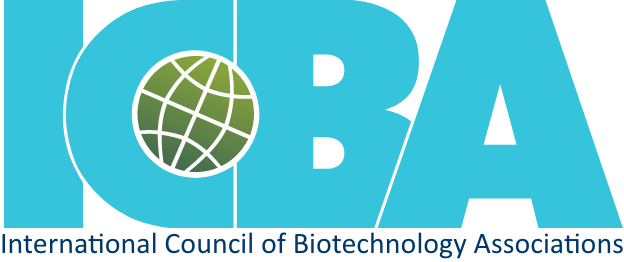Sustainable Development Goals
Driving Solutions with Biotechnology

SDG 1: No Poverty
Biotechnology helps farmers increase their incomes and reduce their vulnerability to climate change.
To achieve this, biotechnology increases farm income through higher productivity and lower production costs, as well as improves crop resiliency to climate change, enabling more stable farm incomes.
- From 1996-2016, the net farm income gain from biotech crops was $186.1 billion, benefiting approximately 17 million farmers, many of whom are farmers.
- In 2016, farmers in developing countries received $5.06 for each extra dollar invested in biotech cropseeds
- In India, insect resistant biotech cotton has yielded a 50% gain in profit among farmers and raised household income by18%

SDG 2: Zero Hunger
Agricultural biotechnology is critical in helping to feed a growing world population.
Biotechnology produces healthier and more productive crops, reduces food waste by extending shelf life of produce and improves child nutrition through enhancing stable crops with increased amounts of essential vitamins and minerals.
- The Fall Armyworm, first detected in 2016 in West Africa, has the potential to cause extensive maize yield losses in 39 African countries, effecting over 300 million African farm families. Biotech maize has proven effective in protecting against he pest in Brazil.
- Between 1996 and 2014, crop biotechnology was responsible for an additional 158.4 million tons of soybeans, 321.8 million tons of corn, 24.7 million tons of cotton lint and 9.2 million tons of canola without having to bring more land into agricultural production.

SDG 3: Good Health & Well Being
Biotechnology plays a critical role in saving lives and improving the quality of life for populations across the globe.
Biotechnology companies develop medicines to help people live longer and healthier lives. They produce vaccines and other tools to prevent and contain epidemics and detect and diagnose conditions sooner and with greater accuracy and precision.
- Today, 83% of children with cancer survive, compared to 58% in 1970
- Small to medium-sized biotechnology companies are responsible for nearly 70% of all COVID-19 vaccines and therapeutics R&D projects.
- HIV/AIDS is no longer fatal. Today, a 20-year-old diagnosed with HIV can live well into his/her 70s due to the development of antiretroviral (ARV) combination treatments.
- Worldwide, 2.5 million child deaths are prevented each year through immunization.

SDG 6: Clean Water & Sanitation
Biotechnology helps ensure availability and sustainable management of water and sanitation.
To achieve clean water and improve sanitation, bacteria and plants are used for water purification to remove chemical contaminants from water.
- The Safe Drinking Water Foundation in Canada designed a water treatment system that uses bacteria instead of chemicals to remove contaminants from water
- Chitin, a marine resource, is used across the globe to treat drinking water due to its properties that enable it to attach itself to a variety of organic contaminants (bacteria, algae,) minerals, metals and oil. Chitin dramatically increases the effectiveness of filtration systems as it is able to capture fine particles and solved pollutant.

SDG 7: Affordable & Clean Energy
Biofuels, a cleaner and more sustainable source of energy, are produced from a wide range of renewable biomass feedstocks and can contribute to the reduction of greenhouse gas emissions by substituting for hydrocarbons in transportation fuel.
Biofuels contribute to the reduction of greenhouse gas emissions as countries and cities adopt them as a primary source of energy and companies commit to increased production and use of biofuels.
- Brazil is a leader in producing biofuels and has replaced almost 42 percent of its gasoline needs with sugarcane ethanol.
- The Swedish city of Kristianstad uses biogas to generate electricity and heat and to fuel cars and municipal garbage trucks and buses.

SDG 8: Decent Work & Economic Growth
Biotechnology innovations, such as medicines and agricultural products, present populations with opportunities for economic growth.
To achieve economic growth, biotechnology provides farmers with inputs to grow crops with higher yields and fewer inputs; and contributes to healthier workforces.
- Over the last 20 years, crop biotechnology has stimulated economic growth in the 26 countries where the technology is used.
- GM crops help alleviate poverty for millions of research-poor farmers around the world (equaling approximately 65 million people total.)

SDG 9: Industry, Innovation & Infrastructure
Research and development in the field of biotechnology is occurring across the globe empowering scientists to develop solutions to the most pressing global challenges.
To achieve this, biotech companies and countries are committed to:
- Constructing biotechnology parks
- Investing in infrastructure to increase R&D capabilities
- Connecting to the international community to create opportunities for investment and partnerships.

SDG 12: Responsible Consumption & Production
Innovation in industrial biotechnology can contribute to the reduction of over extraction of resources and expedite efforts to responsibly use environmental resources. Industrial biotechnology applies life science tools, such as microbes and enzymes, to traditional manufacturing and chemical processes to produce cleaner, more sustainable products and materials.
Applications of biotechnology:
- Reuse materials destined for landfills to create new products
- Use enzymes and other biological processes to create sustainable products
- Create environmentally sound processes to manage chemicals

SDG 13: Climate Action
Agricultural and industrial applications of biotechnology are critical in combating and coping with the effects of climate change.
To combat climate change, biotechnology replaces traditional energy sources with cleaner fuel options, reduces greenhouse gas emissions through the use of GM crops and provides solutions for subsistence farmers combating the effects of climate change.
- The below 50 coalition of global companies and institutions is dedicated to increasing the production and promotion of biofuels
- GM crops use less land and less deforestation, reducing the use of fossil fuels for farm inputs and equipment, animal agriculture, land clearing and preparation, and are significant contributors to greenhouse gas emissions.

SDG 14: Life Below Water
Biotechnology can contribute to efforts to conserve and sustainably use ocean resources.
To preserve marine ecosystems, biotechnology uses genomic sciences to provide new foods and food production methods. They provide safeguards for ecosystems at risk and reduce nutrient run-off into waterways.
- Marine-derived biosensors help to monitor marine environments by revealing the presence of an element, molecule, or organism of interest.
- DNA-based monitoring tools can also validate the identity of species and alert to the presence of invasive species.

SDG 15: Life on Land
Agricultural biotechnology innovation contributes to the protection of terrestrial ecosystems and biodiversity.
To preserve life on land, biotechnology :
- Preserves water and topsoil through sustainable farming
- Enables more precise pest control, better preserving biodiversity
- Uses less land to farm crops resulting in less deforestation and the preservation of biodiversity
- Can save vital trees and crops at risk of extinction

SDG 17: Partnerships for the Goals
Biotechnology companies, NGOs, research institutions, multilateral institutions and governments are creating global partnerships with countries, companies and researchers across the globe.
Biotech companies are creating global partnerships to transfer biotechnology innovations for sustainable growth and build innovative biotechnology sectors to equip local scientists with the knowledge and tools to develop solutions to societal challenges.
- The Water Efficient Maize for Africa (WEMA) project utilizes technology made available royalty-free to local seed companies so they can offer drought-tolerant hybrids to farmers
- Merck supports the Broad Reach Institute for Training and Education (BRITE) by funding the Management and Leadership Academy (MLA) program in Zambia. Since 2011, over 700 healthcare workers have been trained with the goal of empowering them to transform the delivery of healthcare in their own country.
For the full brochure on how biotechnology is developing solutions for sustainable development goals, click below to download


